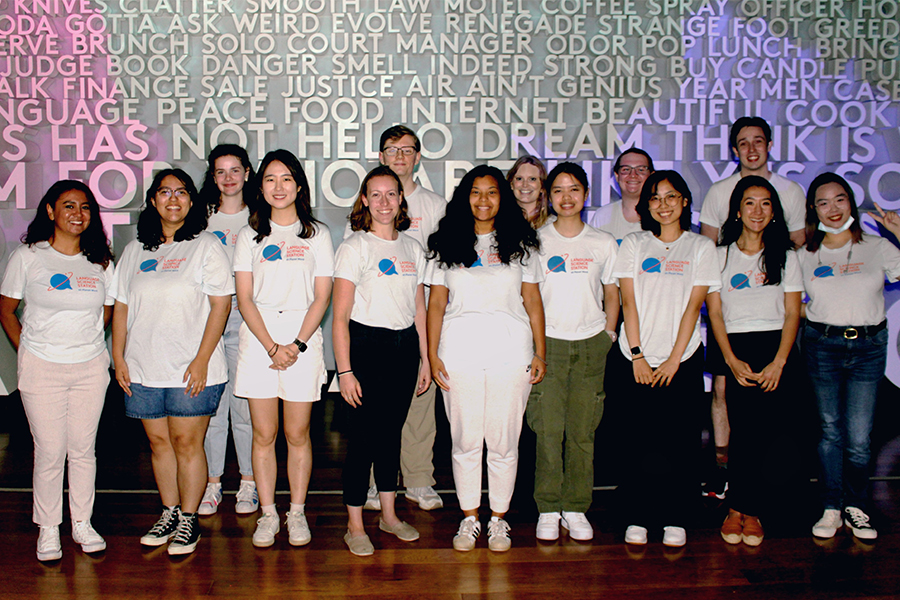Conduct Student-Led Research in the Language Science Station’s Annual Summer Course
February 21, 2024
Maryland Language Science Center

Pictured: Language Science Station class of 2023, via Instagram Registration is open for the Language Science Station ’s annual summer course, MLSC420/620: Language at the Museum: Engaging the Public in Language Science . Language at the Museum stands out from other language science courses by offering unique hands-on lab experience within Planet Word , an interactive language museum in Washington, DC. The course welcomes undergraduate and graduate students and covers language study, research ethics, and study design. Experience in Public-Facing Research Primarily, Language at the Museum meets the high demand for research experience, especially from undergraduate students. Prior research experience is not required, and students receive training on how to conduct public-facing research. Through research training, students also learn how to communicate language science concepts to visitors by meeting them at their level of knowledge and interest. In addition to conducting public-facing research, students investigate why language science research is conducted, how, and what we’ve learned from it. Current Studies In the course, student researchers conduct fun studies that explore a wide variety of subjects in language science, providing them with a thorough understanding of the field. The Language Science Station currently offers four studies: “Guess the Sign,” “Race the Robot,” “E is for Expert,” and "Language and Concussion." In “Guess the Sign,” visitors guess the meanings of American Sign Language (ASL) signs. Researchers use collected data to determine what signs are easier and harder to guess, which could potentially improve ASL teaching.In “Race the Robot,” visitors complete sentences as quickly as possible. Using study results, researchers hope to better understand how brains predict what comes next in a sentence.In “E is for Expert,” visitors are asked about a topic they're knowledgeable about and one they are less familiar with. Researchers analyze results to understand how words are linked in the brain and how these connections vary among individuals.In “Language and Concussion,” visitors are asked to play language games to explore how concussions affect language. Collected data is used to help develop protocols for determining when children with concussions can return to school. Meaningful Moments at the Language Science Station Beyond research, Language at the Museum fosters memorable personal interactions. Dr. Charlotte Vaughn and Lab Manager Stella Huang have seen this firsthand, as student researchers conduct studies with visitors of all ages and backgrounds. During “Guess the Sign” sessions, young visitors stay interested and finish research studies eager to teach their families the ASL they've learned. During one session for “Race the Robot,” a mother and son heard the prompt “The mother was the one that the son…” and the child excitedly shouted, “LOVED!” Children seem to enjoy the experience and are enthusiastic about participating in research. From engaging young minds with ASL to sparking curiosity in children eager to participate in research, these moments highlight the impact of the course beyond academics. Course Information MLSC420/620: Language at the Museum: Engaging the Public in Language Science is a six-week, 3 credit summer course. The course will take place over Zoom and at the Language Science Station in Planet Word. The course will be led by Dr. Charlotte Vaughn, the Founder and Director of the Language Science Station and an Assistant Research Professor at the Language Science Center at the University of Maryland. Eligible students with a background in language science or related fields can enroll in the summer course. For more information, visit the Language Science Station website or contact Stella Huang at gehuang@terpmail.umd.edu . Faculty interested in collaborations can reach out to Dr. Charlotte Vaughn at cvaughn@umd.edu . Follow the Language Science Station on Instagram and X (formerly Twitter) at @LangSciStation for updates. Faculty are encouraged to spread the word and share this opportunity with students and colleagues.



